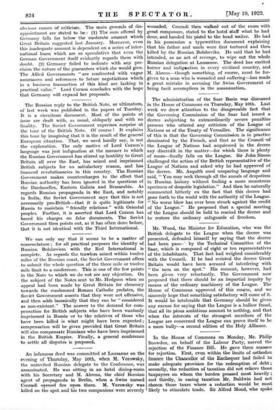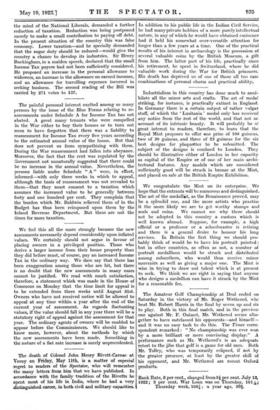In the House of Commons on Monday,. Mr. Philip Snowden,
on behalf of the Labour Party, moved the rejection of the Finance Bill. He gave three reasons for rejection. First, even within the limits of orthodox finance the Chancellor of the Exchequer had failed to make adequate provision for the redemption of debt ; secondly, the reduction of taxation did not relieve those taxpayers on whom the burden pressed most heavily ; and thirdly, in easing taxation Mr. Baldwin had not chosen those taxes where a reduction would be most likely to stimulate trade. Sir Alfred Mond, who spoke the mind of the National Liberals, demanded a further reduction of taxation. Reduction was being postponed merely to make a small contribution to paying off debt. In the present situation of the country this was false economy. Lower taxation—and he specially demanded that the sugar duty should be reduced—would give the country a chance to develop its industries. Sir Henry Euckingham, in a maiden speech, declared that the small Income Tax payers had not been sufficiently considered. He proposed an increase in the personal allowance to widowers, an increase in the allowance on earned incomes, and an allowance for travelling expenses incurred in seeking business. The second reading of the Bill was carried by 271 votes to 157.











































 Previous page
Previous page